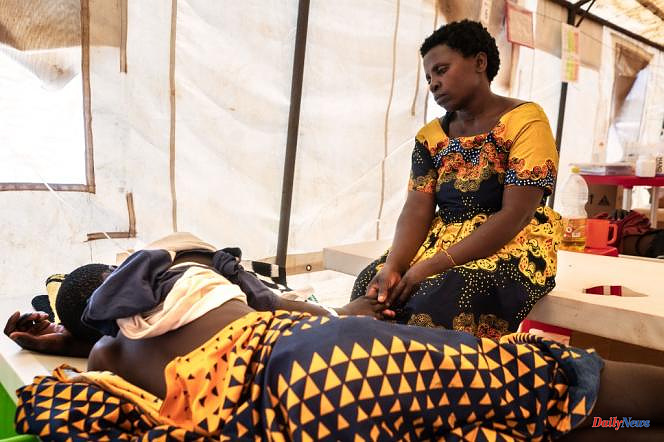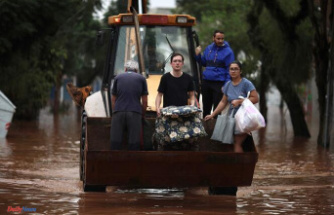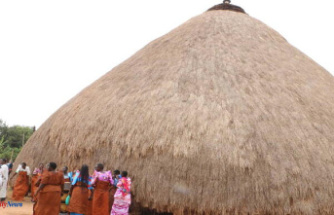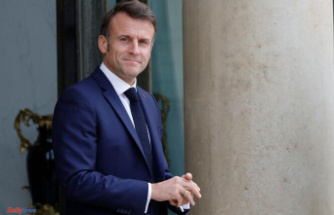Africa is experiencing an “exponential increase in the number of cholera cases”, alerted the World Health Organization (WHO) on February 9. "Exponential", the adjective is scary as ten African countries reconnect, to varying degrees, with an epidemic. In January alone, cholera "has already reached more than 30% of the total number of cases recorded for the whole of 2022" across the continent, says the WHO African office.
If, in the west, only Nigeria and Cameroon are currently affected, central and eastern Africa are suffering more: the Democratic Republic of Congo (DRC), Burundi, Kenya, Ethiopia, Somalia, Mozambique, Zambia, Somalia and, above all, Malawi.
The southern African country of 20 million inhabitants alone accounts for, Monday, February 27, almost half of the continental load with 49,207 declared cases and 1,564 deaths since March 2022. In early December, the government had qualified the outbreak of "public health emergency".
Marion Pechayre, head of mission in Malawi for all activities of the NGO Médecins sans frontières (MSF), explains the challenges of the worst cholera epidemic in the country's history in a context of vaccine shortages.
Marion Pechayre We reached a peak of almost 700 new cases per day around February 3. Since then, the epidemic has been decreasing with less than 500 daily cases. The constant trend is downward, but we still don't know if the worst is behind us. The situation remains all the more fragile as it has started to rain a lot. The rainy season, which runs from November to April, is a factor favoring contamination. And we are still in hurricane season. So you have to be very careful.
Today, all 29 districts of the country are affected. By mid-February, only two of them, Chikwawa and Nsanje, had the outbreak under control. These two southern districts, traditionally affected, had vaccinated their population well between May and October 2022 as a preventive measure. This two-dose oral vaccination provides protection for three to five years. Today, nine districts have reported less than four daily infections.
From March and the very first cases, MSF doubled its teams on the ground to deal with and open cholera treatment centers (CTC). We have seen the epidemic go up from the South to the North. We immediately made a request for vaccines to the International Coordinating Group (ICG), which manages global emergency stocks, and we started vaccinating in May as soon as we received the first doses, but that could be enough to stem the outbreak.
It is a combination of several factors, some known, others exceptional. The first cause of contamination is a lack of access to drinking water, a lack of wastewater treatment infrastructure, and even the absence of latrines in the villages. You should know that Malawi is the poorest country in the world at peace.
With the Covid crisis, here, the socio-economic situation has suddenly deteriorated. Then came the war in Ukraine and inflation, which soared to 27%; the currency, the Malawian kwacha, was devalued in May. By January 2022, Cyclone Ana had flooded and destroyed much. The poor have become even poorer. Health deteriorates quickly in these circumstances, even more so in a country where the already underfunded healthcare system has been destabilized by the Covid.
Cholera, in a healthy person, is like having gastroenteritis. But when you are in poor health, undernourished, cholera can quickly become deadly. Vibrio cholerae poisoning causes diarrhea and vomiting, you suddenly become dehydrated. Seeing people die of cholera is all the more tragic since treating the sick is extremely simple, all you need to do is rehydrate orally or intravenously.
I am not a climate expert but, on the ground, we see that the rains have been more abundant, in addition to the passage of two tropical cyclones. The level of Lake Malawi has never been so high. However, cholera usually develops from this large lake, which runs the length of the country and which is also shared by Tanzania and Mozambique. Its waters are used to feed with fishing, to drink, to irrigate crops, to wash, and unfortunately also to relieve oneself. These conditions favor the reappearance of the vibrio.
However, this year, the epidemic has spread up the country from the south, to the Mozambican border, more than 100 kilometers from the lake. As we can see, we must be very careful, because an epidemic can start in several places at the same time and it is always the result of several associated parameters. Moreover, genetic analyzes of the vibrio are underway to determine whether the bacterium present is mutant or not. This could also explain that the epidemic is more virulent this year.
The scarcity of cholera vaccines is the real issue. Global production is very insufficient and only relies on one manufacturer, the South Korean EuBiologics. We are in the process of managing the shortage of a vaccine deemed unprofitable or not profitable by the overwhelming majority of laboratories.
When, in January, MSF wanted to anticipate the arrival of the epidemic that was looming, the ICG could not supply us. On the one hand because this mechanism is only triggered with the first declared case and, on the other hand, because the production of this vaccine, although important and increasing, is insufficient. Finally, there is no intermediate procedure for emergency preventive campaigns, whereas in Malawi all the indicators were met which justified raising the alarm.
We are facing competition from emergencies. For countries, struggling with few domestic means, and between international priorities: Covid, polio, HIV, measles, etc.
Take the example of polio. For a single case detected in February 2022 [the first in thirty years, according to WHO Africa], millions of children in Malawi, in particular, were vaccinated by the WHO, because the UN agency is in a logic of eradication of this disease. Even if we fully understand the approach and that it is legitimate, we can wonder about the seriousness that the cholera epidemic and the shortage of cholera vaccines represent for Malawians. Because if GAVI, the international organization charged with improving vaccine equity, said, "We're buying you double the doses," manufacturers would start producing enough.
Beyond caring for the sick and vaccinating them when the epidemic is already there, our control strategy is therefore based on pedagogy with the communities and the distribution of chlorine, soap and hygiene buckets that we carry out with the Unicef and other international actors. But all these people deserve to be properly protected without waiting for the country to have the means to improve its sanitation infrastructure and access to drinking water.












